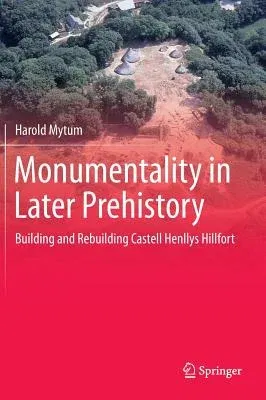This volume provides the results of a 30-year excavation,
reconstruction, and public interpretation campaign at the late
prehistoric inland promontory settlement of Castell Henllys, here
focusing on the defensive sequence and the role of monumentality in
later prehistory. The site has international significance because of the
extensive excavations of the Iron Age palisaded settlement and later
earthen ramparts, complex gateway, and chevaux-de-frise of upright
stones. It is now widely recognised that the Iron Age consisted of many
regional cultural traditions, and the excavations at Castell Henllys
provide a vital contrast to the well-known large hillfort communities in
other parts of England and Wales as well as across Europe. As such, it
is a unique window into a widespread but largely ignored site category
and form of social and economic organisation. The publication will
provide a case study for the construction and use of the earthworks of a
major European late prehistoric settlement type - the Iron Age hillfort;
the monumental construction is compared with other communal investments
such as the Mississippian mounds. It will also offer an innovative form
of site reporting, including alternative interpretations of the
earthworks as either military defences or the community-binding symbols.
Along with Excavation, Experiment and Heritage Interpretation: Castell
Henllys Hillfort Then and Now, these books will be required reading by
those studying the late prehistoric archaeology of Britain and Europe at
advanced undergraduate and postgraduate level, and by those in North
America studying complex societies, monumentality and ways of writing
archaeology.

